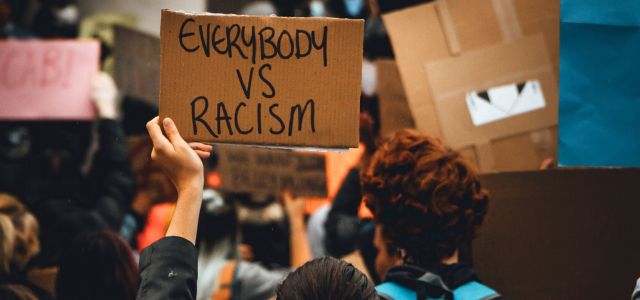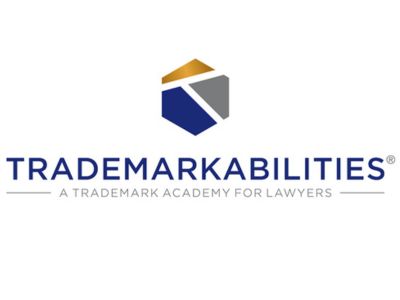In November 2023, the US Court of Appeals for the Federal Circuit (“Federal Circuit”) affirmed the Trademark Trial and Appeal Board’s (“Board”) decision to refuse registration of the mark EVERYONE VS. RACISM on the grounds of failure to function as a trademark. The application, owned by GO & Associates, LLC (“GO”) was filed in June 2020 in the wake of the George Floyd murder for these goods and services:
Tote bags in Class 18; T-shirts and other clothing items in Cl. 25 and “promoting the public interest and awareness of the need for racial reconciliation and encouraging people to know their neighbor and then affect change in their own sphere of influence” in Cl. 35.
The Board rejected GO’s application on the grounds that the slogan was used in a “non-trademark manner to consistently convey an informational, anti-racist message to the public” instead of functioning as a source-identifying trademark. Whether or not a trademark is commonly used as an informational and ornamental manner on clothing items, tote bags, and other items, the evidence considered by the Board demonstrated that EVERYBODY VS. RACISM frequently appeared “in opinion pieces, in music, in podcasts, and YouTube videos, and by organizations (websites) that support efforts to eradicate racism.”
In the US, the first party to file is not necessarily the one that “owns” the trademark, but rather the party that properly uses the mark in interstate commerce is. If the USPTO were to award trademark rights to any company that happened to be the first to file any non-registrable phrase that didn’t function as a trademark, our entire trademark system would crumble. Adopting a ubiquitous phrase is always risky — it’s as risky as adopting a descriptive mark. The USPTO is careful to protect informational matter that conveys sentiments because consumers are unlikely to “perceive the matter as a trademark or service mark for any goods or services.” Rather, when you hear a slogan, you can immediately identify the company behind the slogan.
In this case, GO’s own specimens betrayed the very point it was trying to make — that its slogan had a source-identifying purpose. I don’t believe it did, and I agree both the Board and the Federal Circuit made the right decision in this case. The phrase EVERYBODY VS. RACISM does not function as a source-identifying trademark. Instead, it is an informational phrase expressing a sentiment we all feel and should all be entitled to use. It appears GO was trying to capitalize on a popular sentiment after the fact and secure a monopoly on that phrase, which is not the purpose of trademark law.
What is a client to do when they want to apply for registration of a slogan in the US? As with any other trademark, conducting a proper clearance is paramount. What’s more, it is nearly impossible to secure source-identifying trademark rights in a slogan that is already ubiquitous at the time the client files the trademark. For all slogans, avoid using the trademark descriptively in any text. Remember, the trademark must be used as a source identifier.
Lastly, when it comes to using any trademark on clothing, whether it’s a slogan or not, remember to avoid ornamental use altogether. To properly use a mark on clothing in the US, remember these tips:
- Make sure you have NOT emblazoned your phrase all over the front of the clothing item — that can indicate no trademark use.
- Make sure the trademark is on the neck tag or hang tag — that is what clothing brands do to build brand equity.
- In addition to #1 and/or #2, you can brand the packaging that the clothing items are sent in.
If you want to adopt a slogan of any kind for clothing items in the US — especially a slogan that is ubiquitous — make sure you are working with experienced trademark counsel to avoid a costly result like this one.

Written by Stacey C. Kalamaras
Founder, Trademarkabilities
The Trademark Lawyer Editorial Board Member
You may also like…
UEFA partners with Alliance for Creativity and Entertainment to enhance global anti-piracy strategy
October 21, 2025 - The Union of European Football Associations (UEFA) has officially joined the Alliance for...
EUIPO and UANIPIO welcome the integration of Ukraine’s trademarks into TMview
The European Union Intellectual Property Office (EUIPO) and the Ukrainian National Office for Intellectual Property...
Jägermeister succeeds in opposing the EU trademark application Alten Kräuterfrau for alcoholic beverages
Mast-Jägermeister SE filed an opposition on the grounds of Article 8(1)(b) – likelihood of confusion between the signs...
Contact us to write for out Newsletter













